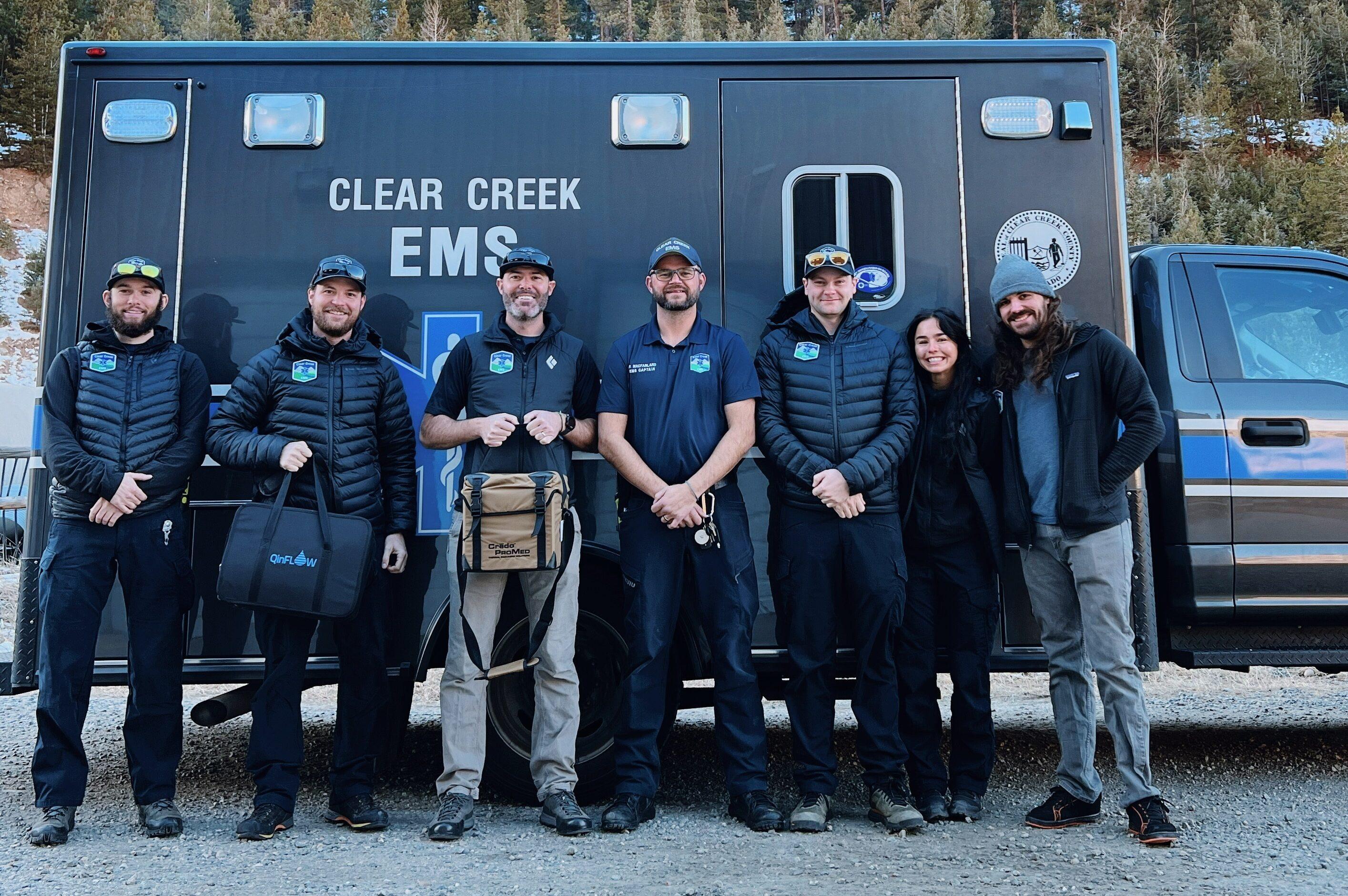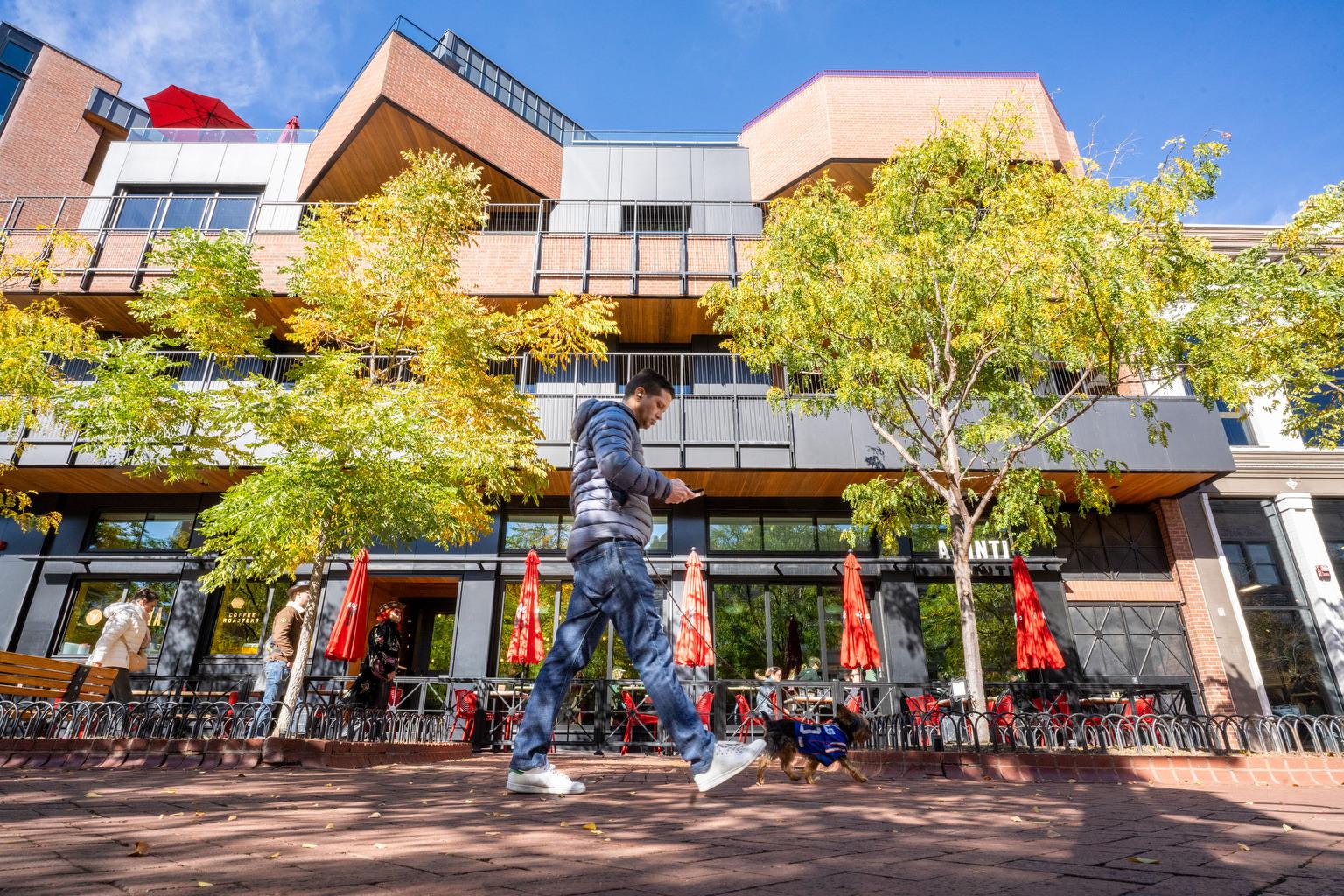Two key ingredients came together for Shannon McCarty to get off drugs in late 2017: connections and timing.
"The police showed up because they said they got a call that we were shooting up in the car," Shannon said.
Everett police officer, Inci Yarkut walked up to window of the car where Shannon was living.
"I explained who I was and what my role in the police department was," Yarkut said, and she gave Shannon a business card. "[I] said, 'Hey, if there's something that we can do for you — because I think there are things that we can do for you, that we can help you — give me a call."
That connection would prove vital for Shannon to get off heroin and meth. And the timing was right for her as well.
Across the country police agencies are re-evaluating how they handle people with addiction. Everett, Wash., is one place where, instead of just arresting people, officers help those with addiction get the services they need. As Shannon's story shows, sometimes a personal touch can make all the difference.
Shannon was not doing well when Officer Yarkut approached that car, Yarkut remembers.
"[She was] very skinny, very pale," Yarkut said.
The difference today is astonishing.
"She looks healthy. She has a big old smile on her face. You can just see in her face what a changed person she is, and it's pretty awesome," Yarkut said.
Sitting next to her in the front of a police vehicle for this interview, Shannon agrees, tears in her eyes.
"It is awesome," she said. "I've been through a lot..."
"I decided I wanted to live"
Shannon's troubles started when she was a kid, she said. The three words she uses to describe her childhood are sad, lonely, and scared.
Being an adult wasn't much easier: chronic pain, mental illness, divorce, drugs. Shannon says she started smoking meth to deal with the long hours of working two jobs, then she moved on to heroin and got hooked. After a few years she was homeless and miserable.
And finally, she was tired of being dope sick, Shannon said. She was just tired. She didn't want to do it anymore.
"You're not going to quit until you're ready and I was so ready and I decided that I didn't want to die anymore," she said. "I decided I wanted to live."
That was when she met Officer Yarkut.
The officer belongs to a special team at the Everett Police Department, created in 2016, called the Community Outreach and Enforcement Team. Officers now partner with social workers to reach out to people with addiction living on the street and connect them to services they need.
"The idea behind our team was to really focus on that outreach piece because just continually putting people in jail, putting people in jail, putting people in jail and having them come out and repeat that cycle of their drug use, that's not doing anything for them," Yarkut said.
The outreach doesn't always work the first time. But Shannon kept Officer Yarkut's number and eventually, texted her.
Shannon and Yarkut read their messages out loud, and Shannon's voice cracks with emotion.
Shannon wrote: "Hello Inci, I tried to send you a message a few weeks ago I'm not sure if you got it ... I was hoping to set up a time to meet with you for your help on the stuff we had talked about. I don't want to go to jail or have a record as I am just the lost, depressed, hurt woman who has made a few poor choices, basically trying to end my life because I can't take pain and hurt anymore ... I have lost a lot over the last three years including my will, it seems. I don't want to be this judged person anymore. I just need some help and I am not usually one to ask for help, but I want to be me again. I am sorry and thank you for listening, and I hope to hear from you soon. Thank you for your time. Shannon."
Officer Yarkut responded: "Hi Shannon, I never got a message from you. I'm so happy to hear from you. I would love to meet and see if we can help you out ... You can call or text me or come by the police department and ask for me. Please hang on. We'll help you."
They're taking it step by step
Step one for Shannon was to stop being dope sick and stop using heroin. Shannon got some Suboxone off a friend, which is not legal but is how a few people have told us they started to get off heroin. Suboxone, also known as buprenorphine, is a proven drug to treat opioid addiction.
Step two was to get addiction treatment the legal way. With Officer Yarkut's business card, Shannon set up meetings with the police officers and social workers, and she got an appointment at a Suboxone clinic.
Step three through... oh, I don't know, step 173?... Set up a new life.
Shannon needs a lot of appointments for drug treatment, counseling and housing. She needs some way to get around, so recently, Officer Yarkut drove her in her patrol car to the Everett bus station and helped Shannon get a bus card with a reduced fare.
Shannon stands on a red X on the floor and poses for her picture.
"This is gonna be a horrible picture," Shannon says. "I have no makeup on."
And then she's done.
Officer Yarkut thanks the woman behind the desk and they walk out of the station. Shannon looks down at her new bus card.
"It's a horrible picture!" Shannon says and laughs.
"It's a bus card. I don't think anyone's picture would look good on that thing," Yarkut says.
Little things
So many little things can build on each other when someone is in recovery. Even really little things are important, like a few words from a loved one marking each day Shannon is off drugs.
"Since day nine, my sister sends me a message every single day and it says, 'Happy Day whatever I'm on.,'" Shannon explained. "And I told her, I said, 'You do not know or realize how much those three little words mean to me, every single day.'"
Those little pieces built on each other.
Ten months later, Shannon has her own place, a low-rent studio apartment in a building in downtown Everett for people who used to be homeless. It's a single room with a bed, a couch, and piles of her stuff, including soup cans, a coffee machine, and a fridge.
Shannon has a new dog, too: a chubby little pug-chihuahua-weiner dog mix.
Shannon has now been sober for almost a year and a half. She texted Officer Yarkut to let her know.
Every day, no matter what — rain, snow, or sunshine — Shannon takes her dog outside, combatting the loneliness she says she still grapples with.
Compared to when she was on drugs and living in a car, Shannon says she's come a long way.
Life is still a struggle, but she says she's trying really hard.
This story was reported by Anna Boiko-Weyrauch, Kyle Norris and Julia Drachman with Finding Fixes, a podcast about solutions to the opioid epidemic, which is a project of InvestigateWest.
9(MDEyMDcxNjYwMDEzNzc2MTQzNDNiY2I3ZA004))








